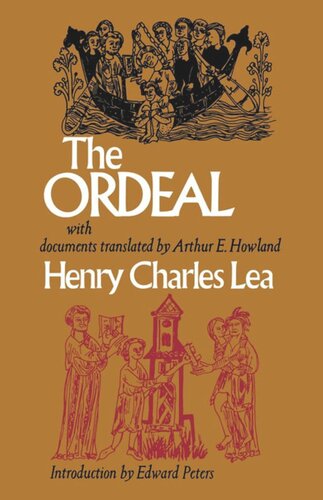

Most ebook files are in PDF format, so you can easily read them using various software such as Foxit Reader or directly on the Google Chrome browser.
Some ebook files are released by publishers in other formats such as .awz, .mobi, .epub, .fb2, etc. You may need to install specific software to read these formats on mobile/PC, such as Calibre.
Please read the tutorial at this link: https://ebookbell.com/faq
We offer FREE conversion to the popular formats you request; however, this may take some time. Therefore, right after payment, please email us, and we will try to provide the service as quickly as possible.
For some exceptional file formats or broken links (if any), please refrain from opening any disputes. Instead, email us first, and we will try to assist within a maximum of 6 hours.
EbookBell Team

4.4
52 reviewsHenry Charles Lea was one of the first American historians to use what would later be termed comparative and anthropological approaches to history. Under his pen, the study of the medieval ordeal becomes a study in cultural history.
Reprinted here from the fourth revised edition of 1892, the book begins by tracing the role of the ordeal in non-Western and ancient societies, showing the mental world to which it belongs: a limited trust in the public order and purely human methods of inquiry, and a larger faith in divine intervention and immanent justice. The work then describes the uses of the institution through the European Middle Ages to its final abolition, and in the process offers a rich typology of ordeals. Additional documents included in this edition present formulas and descriptions of some of the ordeals most frequently used: the ordeal by boiling water, by hot water, by cold water, by hot iron and water, by glowing plowshares, by fire, and the ordeal of the cross.